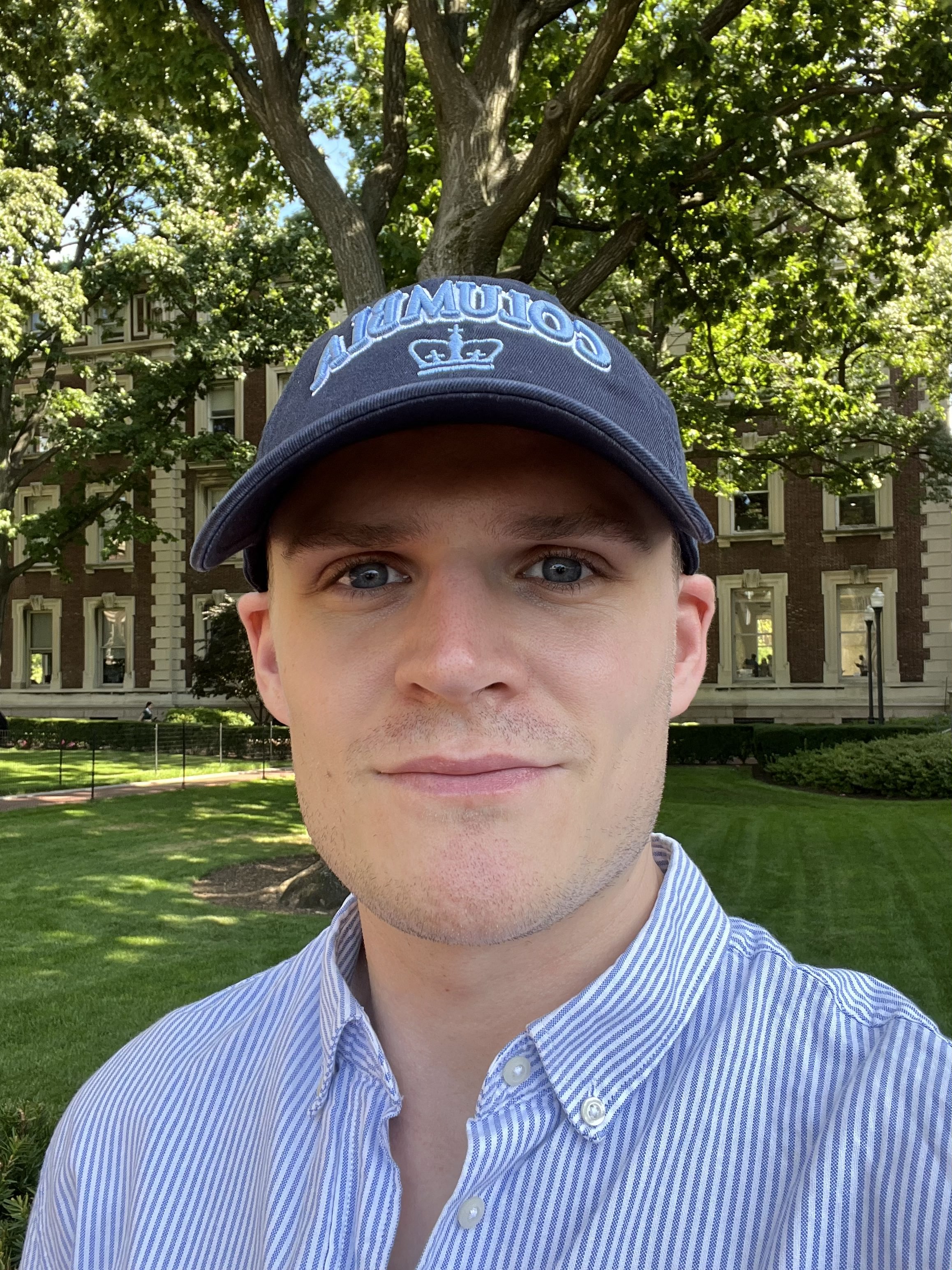
Student Highlight
Simon Carpentier
Monday, May 15, 2023
Simon Carpentier shares his experience as a student in the Human Rights Studies M.A. Program so far.
In which program are you enrolled and when is your expected graduation date?
Human Rights Studies M.A. Program, Fall 2023
What is your research focus? What drew you to this particular issue/set of issues?
I focus my research on how masculinities interact with issues of violence, conflict, and peace. As a member of the Gender Unit of the OSCE Special Monitoring Mission to Ukraine (SMM), I collected and analyzed information on the gendered impact of the armed conflict on civilians in the Donbass region, as part of the OSCE's efforts to implement UN Security Council Resolution 1325 in Ukraine. While in theory, the resolution stresses the need to apply a gender-sensitive approach to conflict analysis, I realized that the experiences and roles of men and masculinities in conflict and peacebuilding are largely neglected by current policy and development responses.
Which class would you recommend to other students interested in the same issues as you?
I highly recommend 'International Humanitarian and Human Rights in War' by Prof. Horst Fischer and 'Sexual Orientation, Gender Identity, and Human Rights’ by Prof. Paisley Currah.
Where did you grow up? In which countries and/or cities have you lived?
Coming from a small town in the north of France (Hucqueliers), my parents sparked my interest and passion for public service. In 2012, I received a scholarship for academic excellence from the French Ministry of Education to pursue my final year of high school at the Lycée Français Charles de Gaulle in London. My keen and increasing interest in how political and social change is achieved drove me to take a direct study of politics at University College London. After graduation, I was interested in developing more practical skills and worked for the gender equality departments of different international organizations. This led me to live in Russia, Turkey, Lithuania, Austria, and Ukraine.
What is a must-read for a human rights student?
Bodies That Matter: On the Discursive Limits of Sex, by Judith Butler (1996).
Can you describe any volunteer or extracurricular activities that you have been a part of during your time at Columbia and how this experience has impacted you?
I participate in the MentorUkraine program, launched by my classmate Tetiana Kotelnykova. I meet regularly online with Liza, a Ukrainian student who, after the Russian invasion, decided to continue her studies in France.
What has been your favorite moment in the program so far?
I particularly enjoyed a group project in my International Humanitarian Law and Human Rights in War course, which aimed to bring war criminals before the International Criminal Court (ICC). My team was responsible for prosecuting President Vladimir Putin in the context of the international armed conflict in Ukraine. We were put in a role-playing situation with defense lawyers and judges and had to argue to the class the charges we were seeking to amend against Putin under the Rome Statute.
What has been the most challenging part of the program?
Alongside my studies, I work part-time and remotely as a Researcher for the Public Policy and Management Institute (PPMI), which is based in Vilnius, Lithuania. As such, the most challenging part of the program so far has been juggling schoolwork and employment. However, my job allows me to strengthen my research and writing skills, which I can apply to my studies.
What are your goals (professional or academic) after graduation? Where do you see yourself in 10 years?
My goal for the future is to continue to work on the intersection of gender, peace, and security, focusing in particular on masculinities in conflict contexts, whether for an international organization or an NGO.
What is your favorite spot to study (or spend time) on campus?
My favorite place to study is definitely the Avery Library. It was truly love at first sight. Not only is it extremely cozy (especially in winter), but I met and became friends with students from other programs too.
What is one thing that your peers would never guess about you or might find surprising?
When I was about 9 years old, I saw the film 'Billy Elliot'. I liked it so much that I took ballet and tap dancing lessons for 4 years. To this day, it's one of my favorite films.
What is your hometown/area famous for?
Every year in June, my village organizes a township festival (known as “la fête du canton”), which brings together people from all the surrounding villages. During the day, various activities are offered: flea market, sale of local products, cow and horse competition, and music concerts. The most anticipated moment is the float parade. The idea is very simple: each village chooses a theme and decorates a float. Last year, we decided to recreate the hippie years, with signs such as “Choose Love, Not War" as a tribute to the war in Ukraine.





